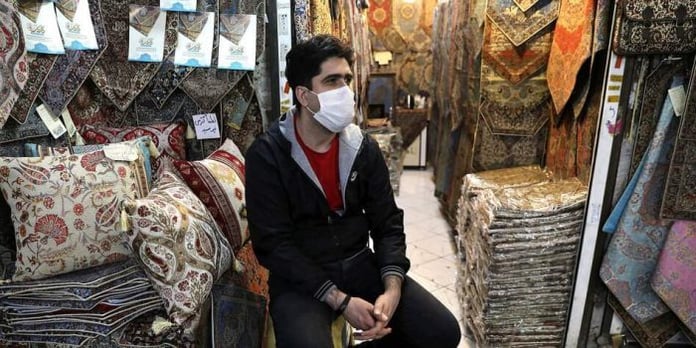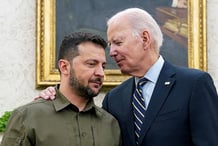
For the first time in nearly 60 years, Iran asked the International Monetary Fund (IMF) for help on March 12, requesting the immediate release of $ 5 billion. Iranian Foreign Minister Mohammed Javad Zarif said his country needed these funds to fight the coronavirus. On the same day, the minister’s spokesman, Sayed Abbas Mousavi, announced on Twitter a letter to the UN Secretary-General “emphasizing the need to lift all US unilateral and illegal sanctions against Iran”.
Iran is worst affected by the pandemic after China and Italy. As of March 18, there were 18,663 cases and 1,213 deaths. However, these are only the confirmed cases, the number of unreported cases is much higher. The first case became known on February 19, the origin of the disease in Iran has not been clarified. Some accuse Mahan Air, which continued to fly to Chinese airports in February. Others blame an Iranian dealer who was traveling in China. Chinese students from the Quran Koran School are also suspected.
Official statistics show that the number of deaths attributed to Covid-19 is increasing every day. Since March 8, the mortality rate in relation to the confirmed cases has more than doubled and has risen from 2.5 to 6.5 percent. Several MPs consider the official figures to be far understated.
The health system is hopelessly overwhelmed. And there is no doubt that US sanctions are doing their part. “If you rob a country of 40 percent of its revenue by preventing it from exporting its oil and gas, the health system is inevitably affected,” summarizes the economist Thierry Coville.
Ban on importing medical equipment
With Switzerland as a mediator, Donald Trump had offered humanitarian aid at the end of February, but without making any concrete suggestions. “You just have to ask for it,” he said. Iranian President Hassan Rohani replied on March 4 that if the US really wanted to help Iran, they should lift sanctions against the country, especially the ban on medical equipment.
France, Germany and the UK provided symbolic support on March 2 and 16, providing equipment for laboratory tests and other equipment such as protective suits and gloves. However, the greatest help comes from China, which has sent experts and solidarity convoys paid for by Chinese donors. Chinese President Xi Jinping said on March 14 that China will continue to use its means to help Iran curb the epidemic.
Medical personnel are at the forefront of the fight against the virus. Doctors work under very difficult conditions because there is a lack of everything. Some of them became infected while caring for the sick and died. The Iranians share millions of posts in social networks to commemorate them.
For a few days now, videos have been distributed on the Internet in which medical personnel in surgical gowns and face masks dance to traditional music or Iranian pop. Several videos have the hashtags #tchalech-e_raqs (dance challenge) or #corona_ra_chekast_midahim (we will defeat Corona).
Crowds on Tehran’s streets
In Tehran, the population has not always followed government instructions. The person responsible for fighting the virus in the capital said on March 14: “Although we have warned the population against the spread of the coronavirus, we have seen a throng like never before in Tehran.”
A strict catalog of measures is intended to “empty the shops, streets and highways nationwide”, as Chief of Staff Mohammad Hossein Bagheri announced in a television address. A newly created commission is to oversee the implementation of the decision.
As early as March 12, Supreme Leader Ayatollah Ali Khamenei called on all armed forces to fight Covid-19. Above all, they are supposed to control the movement of people, both inside and outside the cities. The visible presence of the Revolutionary Guards and the army, for example, when spraying disinfectants, also seems to serve to maintain the image. After the brutal suppression of the protests against the gasoline price hike in November 2019, their reputation had suffered greatly.
The disease, the quarantine and the shutdown of public life are afflicting the Iranian population, which was already under pressure before the Corona crisis. Thousands of shops are closed and many workshops and companies are no longer working. Many people break their income.
Loans with 4 percent interest
The government’s aid program is to offer construction workers, seasonal workers, day laborers, traders, taxi drivers, and hospitality workers a loan of one to two million Toman (66 to 120 euros), repaying them with 4 percent interest. Around three million families will benefit from this. If you have no sources of income at all, you will receive vouchers over 200,000 tomans (15 euros) per month for an individual and up to 600,000 tomans (40 euros) for families with five or more people. On March 16, the influential Bonyad-e Mostazafan, the “Foundation for the Homeless”, announced that it would pay 1 million Toman to 4,000 merchants in southern Tehran.
However, all of this is just a drop in the bucket. The aid measures for the needy sections of the population do not do justice to the extent of the disaster. The Iranian economy is weakened by Trump’s “maximum pressure” policy and rampant corruption. Only the wealthy and large entrepreneurs can breathe a sigh of relief; they have been promised tax cuts this year.
Welcome to the land of contradictions: a theocracy with only 6 percent of the clergy in parliament, with a dress code for women that rejects the majority of the population and bans on directors whose international prizes are exhibited in state museums.
112 colored pages, paperback
monde-diplomatique.de/edition-lmd
Even if the virus itself knows no social differences and the disease can affect everyone – the consequences are much tougher for the disadvantaged. For people who can hardly make ends meet anyway, it is much more difficult to comply with the hygiene regulations. Despite the recommended quarantine, for example, thousands of suppliers are on the move and supply those who can afford to stay at home. Sellers of stolen goods are also arrested every day. The economic security chief reported that on March 14 alone, more than 16 million stolen sanitary aids (gloves, disinfectants, masks, etc.) were confiscated across the country.
In the current situation, the blockade imposed by the USA, especially for sanitary products, is a crime. What is the chance that the IMF will respond positively to the Iranian application? Can he help Iran at all without Washington’s approval? How will the major international organizations and the other countries that deal with the pandemic react? Who dares to challenge the United States in these times of unprecedented health crises? The situation in Iran is out of control.
From the French by Claudia Steinitz











